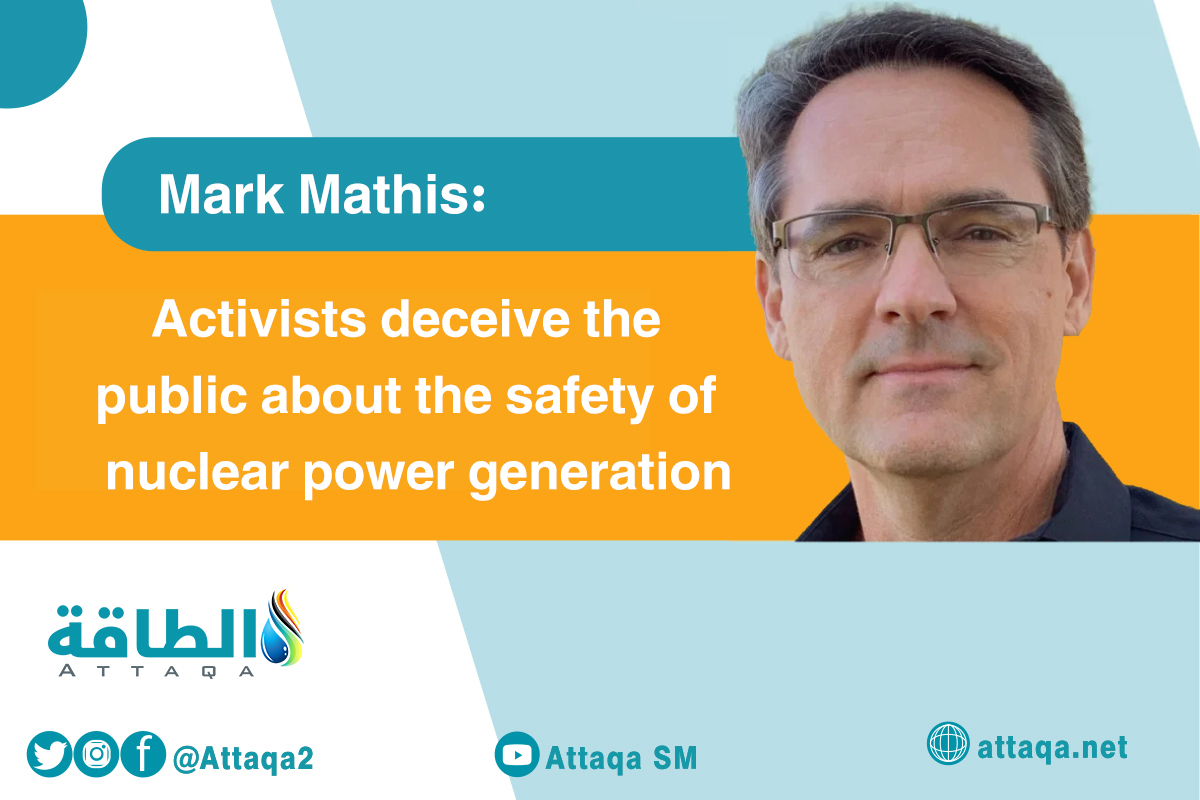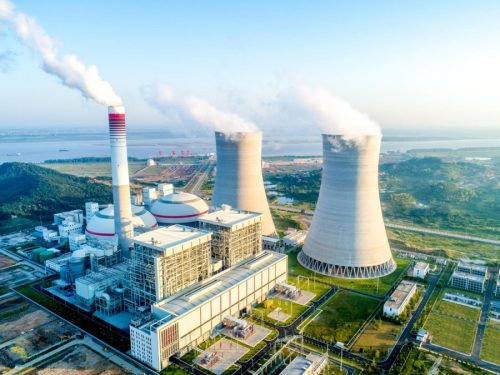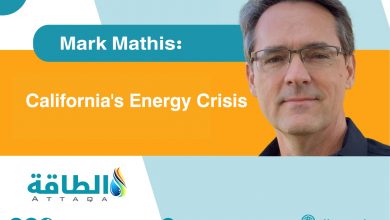The fear about nuclear power is beginning to fade (Article)
Mark Mathis

Thirty-six years ago, I was a news reporter in San Luis Obispo, California. A short distance down Highway 101 sat one of the most compelling attractions any newsman could ask for.
Diablo Canyon Nuclear Power Plant had just started up its second reactor in a gleaming facility overlooking the Pacific Ocean.
It was a spectacular scientific and technological marvel. I would have loved to have been cranking out stories about nuclear power every other week. But Diablo Canyon had been continually harassed by protestors while it was under construction.
By the time I arrived on the scene, executives were tired of being slandered with inaccurate press.
So, they didn’t let me in to see the reactors, which seemed like a missed opportunity. I thought the policy of greatly restricting access by reporters contributed to the public fearing something people didn’t understand. So, the fear continued… for decades.
people fear about nuclear power
Thankfully, the fear that so many people had about nuclear isbeginning to fade.
Today, Diablo Canyon has a big and extremely important story to tell. It is California’s largest generator of electricity, and it could continue its record of safely producing power for the state for decades to come—if policymakers allow it.
Diablo Canyon is scheduled to be prematurely shut down beginning in 2024. The good news is that might not happen.
Governor Gavin Newsom is signaling he’s open to postponing the closure. Now that’s some unexpected rationality coming from a California Democrat.
But Newsom isn’t the only one. Suddenly, the word “nuclear” is also on the lips of other politicians in the U.S., UK, the Netherlands, Poland, and elsewhere. The European Union has endorsed nuclear as “green” energy.What a reversal!
 Nuclear accidents
Nuclear accidents
Even five years ago this did not seem possible. Nuclear accidents at Three Mile Island in Pennsylvania, Chernobyl in Russia, and Fukushima in Japan have a fear-inducing legacy.
The fact that each of these accidents were anomalies among older designs hasn’t gotten much attention from the media.
And, of course, professional anti-nuclear activist groups have made it their mission to generate irrational anxiety.
One effective tactic is to inaccurately link atomic power to atomic bombs. The activists have been so successful at deceiving the public about the safety of nuclear power generation they figured all they had to do was to keep the disinformation flowing for another decade or so until nearly all nuclear power in the free world had been shut down. So, what changed?
the war in Ukraine
Yes, the war in Ukraine has awakened most of Europe to the necessity of abundant, affordable electricity.
Many leaders have gained a sudden new appreciation for the essential nature of oil, natural gas, and coal. Nuclear is correctly viewed as a resource that can reduce dependence on the fuel sources that are suddenly in short supply.
Blackouts across the United States, Europe, Australia and other nations were happening years before the Ukraine war, but many people didn’t understand this was the leading edge of a long-term problem. Now they do.
As it turns out,blackouts are a feature (not a bug) of too much wind and solar capacity.
While these developments have been important in waking people up to the potential of nuclear power, they didn’t happen on their own.
the anti-nuclear fraud
Over the past several years a relatively small number of effective communicators have clearly exposed the anti-nuclear fraud. The leader of this brigade is Michael Shellenberger, author of “Apocalypse Never.”
Shellenberger had been persuasively advocating on behalf of nuclear energy for many years creating a groundswell of support. His excellently timed bookput the pro-nuclear movement into overdrive.
A few other books were released in the same time frame, including Bjorn Lomborg’s, “False Alarm,” which argues that climate change is a problem, but focusing all efforts on the reduction of using fossil fuels is foolish and counterproductive.
Alex Epstein has emerged as an effective communicator on energy topics. While he writes and speaks mostly about fossil fuels (his book “Fossil Future” was released in May) he is a strong advocate for nuclear as part of a rational energy policy.
the positive potential of nuclear power
But not everyone is catching on to the positive potential of nuclear power.On July 7thGerman lawmakers killed an effort to extend the life of the nation’s last three nuclear reactors.
Germany is facing a perilous energy future tied to an unreliable flow of Russian natural gas and its leaders vote to cut an additional six percent of reliable electric capacity? Unbelievable. Apparently, the Germans will not wake up to energy reality until they endure more needless suffering. All right, then. More suffering is on the way.
Thirty-six years ago,I witnessed a reaction to nuclear power that defied all logic. As a young reporter I was just beginning to understand that human societies sometimes accept irrational ideas that undermine the health and safety of the public.
People eventually wake up when it’s too painful remain in denial. Some cultures have a higher pain threshold than others.
*Mark Mathis, Author, “Feeding the Media Beast” & Filmmaker, “spOILed” and “Fractured” & Video Producer, Clear Energy Alliance.
READ MORE...
- Growing recessionary fearshave gained a bigger hold on market sentiment (Article)
- The fanciful goals of Green New Deal are nowhere in sight (Article)
- The Iranian gas dues problem and resupplying Iraq and Turkey (Article)
- Carbon Tax Drives Energy Prices Higher (Article)
- The way down for crude prices could be long and winding (Article)
- Are people spoiled by the comforts of affordable and abundant energy? (Article)
- Supply troubles may continue to keep crude out of bear territory (Article)
- America hasn’t had a long-term rational energy policy for decades (Article)







